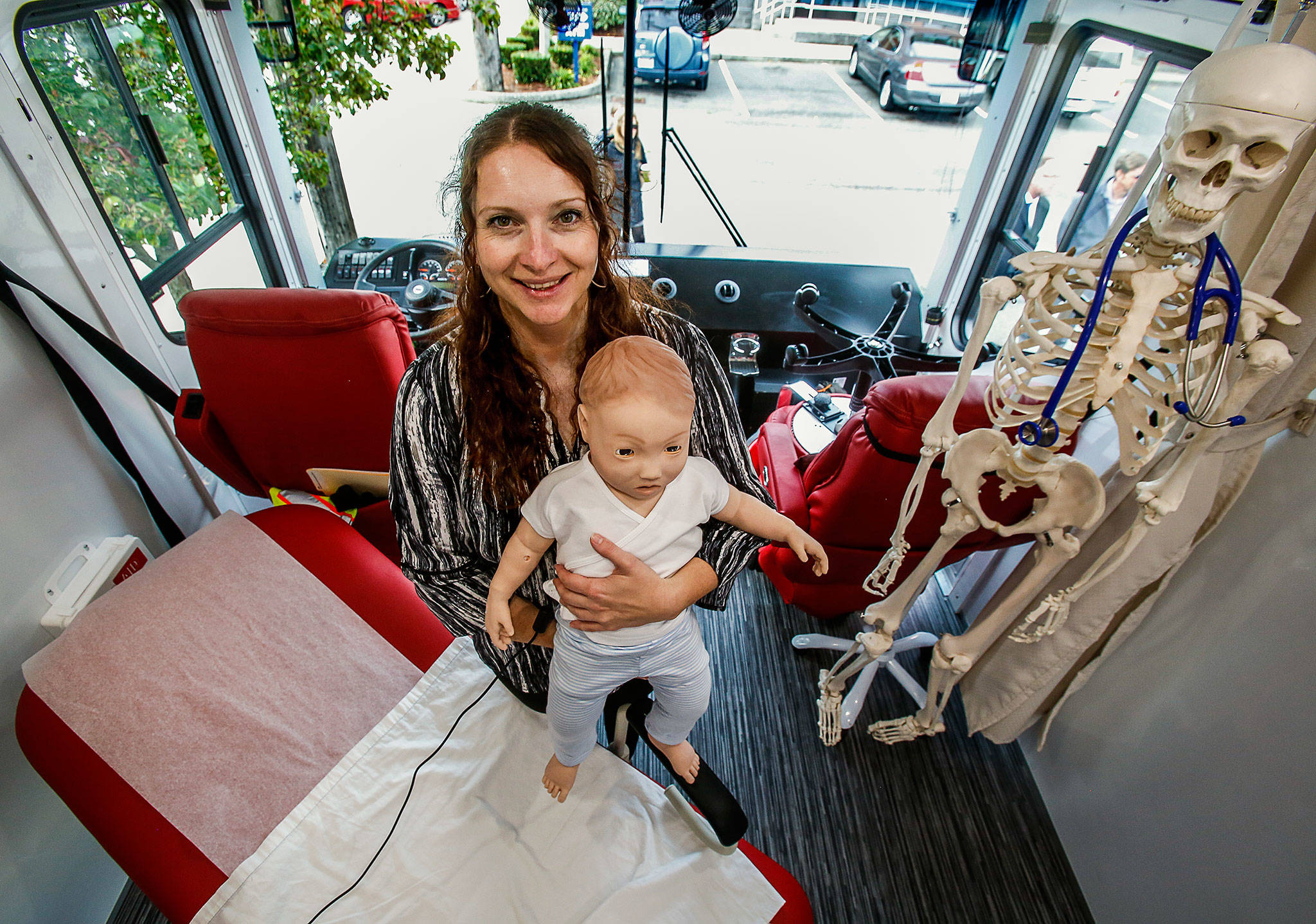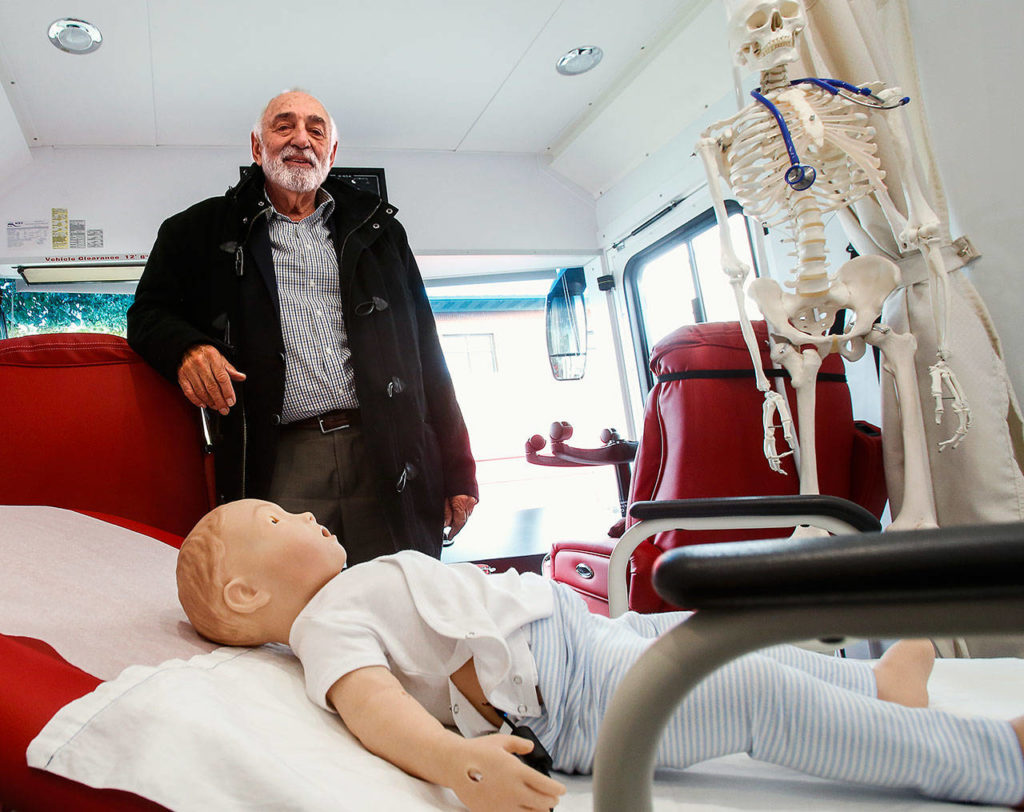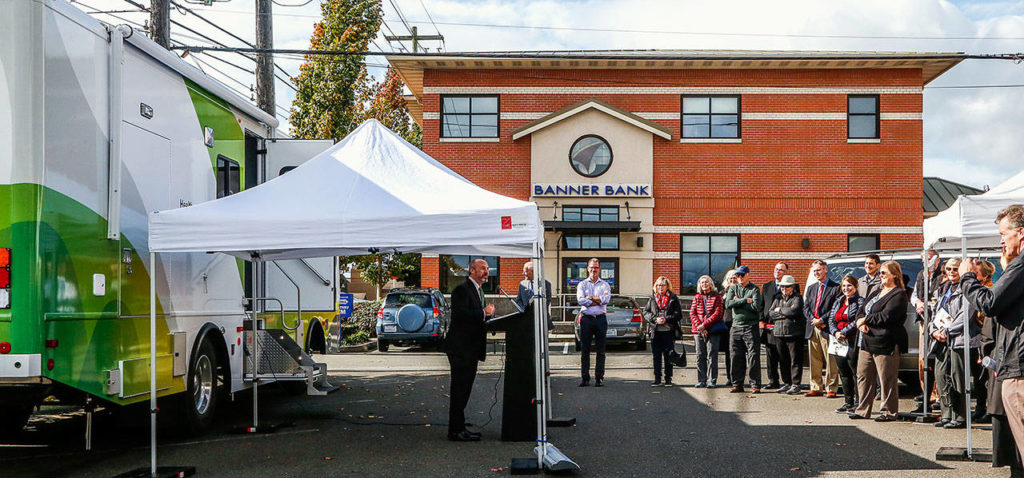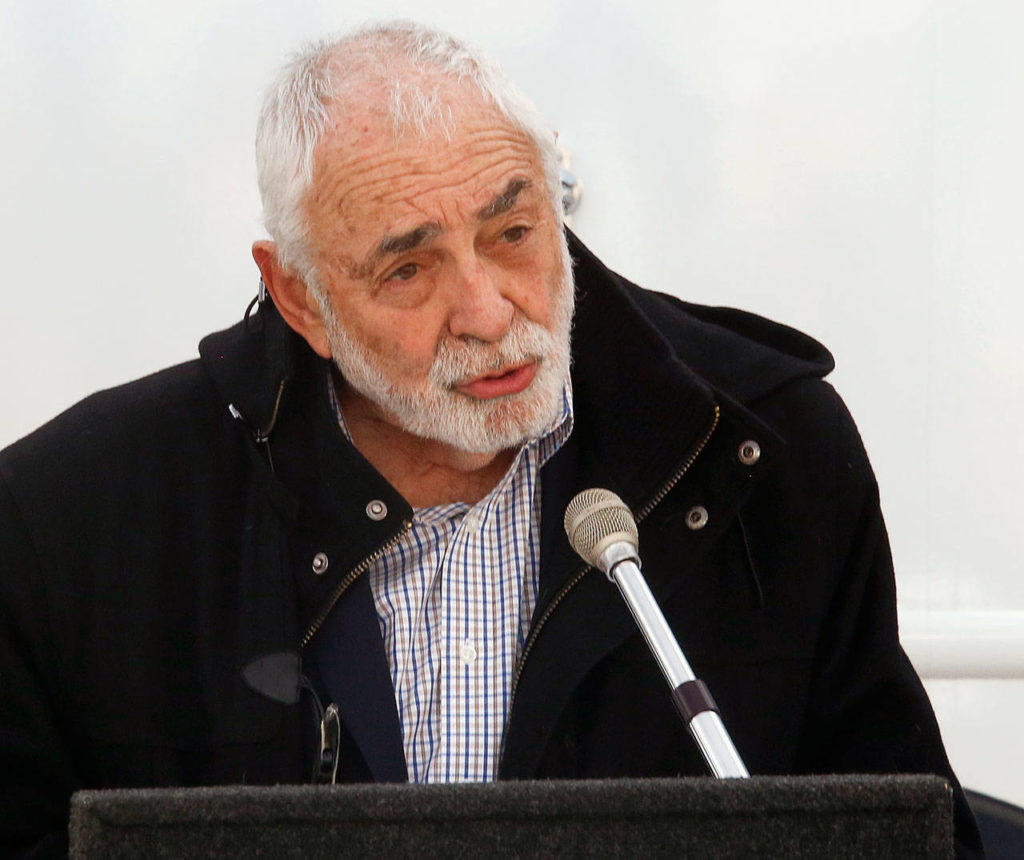A glimpse at the future of health care access for Washington’s underserved areas rolled into Everett on Thursday.
“It’s just a fantastic day,” said Chancellor Paul Petrie, the leader of Washington State University Everett, as a small crowd got a look at the new William A. Crosetto Mobile Health Care Unit.
The traveling clinic, with two exam rooms, is the first of what planners hope will be a fleet of mobile units operated by Range Health, a new nonprofit health network. A week ago, WSU announced the launch of Range Health. It’s a separate entity from WSU, but will work in partnership with the university’s Elson S. Floyd College of Medicine, which is based in Spokane.
Fifteen third-year students from WSU’s medical school are spending this year in Snohomish County, working in clinics and hospital settings, and will stay here for their fourth year. Along with Spokane, the medical school also has clinical campus sites and students in the Tri-Cities and Vancouver, Washington.
The sleek green and white vehicle — it looks like a high-end tour bus or luxury RV — was parked Thursday outside Banner Bank on Colby Avenue. Through this month, the bank is sponsoring the medical unit’s tour around the state. “We’re thrilled to be part of it,” said Jeffrey Mitchell, a senior vice president with Banner Bank in Everett, who noted that his organization has banks in Washington’s rural areas, places that may be served by Range Health.
The vehicle is not yet providing services, but visitors Thursday had a chance to peek inside and see on exam tables two high-fidelity mannequins, one toddler-sized and the other an adult figure. Carrie Brood, a simulation education specialist with WSU’s medical school, said the mannequins are used in training to mimic patient care.
William “Bill” Crosetto was an Othello area cattle rancher whose name is on the mobile unit, along with Range Health and the WSU logo. A former WSU track standout, he was 75 when he died in January 2018. He was a bachelor with no children. According to Spokane’s Spokesman-Review newspaper, he lived a simple life, drove his weathered pickup into town for coffee with farmer friends, and left more than $5 million to charitable causes.
Before his death, he worked with the Innovia Foundation in Eastern Washington to create the William A. Crosetto Charitable Foundation to support medical education and rural health.
A passion for health care was his family’s legacy. Crosetto’s uncles were Fred Hutchinson, a pro baseball player and manager who died of lung cancer at age 45, and Fred’s brother, Dr. William Hutchinson, a surgeon, cancer researcher and founder of the Fred Hutchinson Cancer Research Center in Seattle.
Speakers Thursday included Dr. John Tomkowiak, founding dean of WSU’s Elson S. Floyd College of Medicine, and Dr. Larry Schecter, its associate dean of clinical education-Everett.
Schecter foresees a time when mobile units will be providing primary care in underserved areas, both in sparsely populated places and cities.
Tomkowiak said there are parts of Spokane where life expectancy is 17 years shorter than in other parts of the city. And 40 percent of the state’s veterans live in rural areas, where health care is less available, Tomkowiak said. “There’s a lot of work we can do,” he said.
The name Range Health alludes to the nonprofit’s aims — to range throughout the state, providing a range of services.
“There’s need all across the state. We’re still very much in the early stages,” said Christina VerHeul, a spokeswoman for the WSU medical school. Plans for a second mobile are in the works, she said. Patient care isn’t yet scheduled, but could begin next year.
“What we know, all 39 counties have a primary care shortage,” VerHeul said. “The ultimate goal is to serve all 39 counties.”
Julie Muhlstein: 425-339-3460; jmuhlstein@heraldnet.com.
Talk to us
> Give us your news tips.
> Send us a letter to the editor.
> More Herald contact information.




























